15 Most Popular Grocery Chains in the U.S: Walmart, Kroger, Costco, And Albertsons
The biggest grocery stores in the U.S. have a big impact on the retail world, and each one has its own unique ways of serving millions of people every day. Walmart is the largest and has the most selection. Its low prices also help it get ahead of other stores. Kroger comes next. It is known for having a large supermarket chain and coming up with new ways to help customers. The way Costco sells in bulk is great, and the fact that members can only buy certain things makes it even better.
Albertsons has many brands, such as Safeway, so they can cater to a wide range of customers. Publix stands out because it has great customer service and is owned by its employees. Aldi, on the other hand, attracts shoppers on a budget because it is simple and cheap. In Texas especially, H-E-B supports local goods and community ties.
Whole Foods, which is now owned by Amazon, focuses on natural and organic products and uses high-tech to make things easier for customers. Trader Joe's chooses a unique range of products that make customers loyal to the brand. Wegmans is famous in the Northeast for its friendly service and sense of community.
The fact that Meijer is open 24 hours a day makes it stand out from other stores that are only open during certain hours. With in-store fitness and dietitian services, Hy-Vee puts a lot of emphasis on health. With memberships, Sam's Club and BJ's Wholesale are able to offer big discounts on a wide range of goods to people who buy in bulk. Lastly, Lidl is quickly making a name for itself with low prices and high-quality private labels that reflect how American shoppers' tastes are changing.
 Top 10 Best Shopping Malls In The US 2024/2025 Top 10 Best Shopping Malls In The US 2024/2025 Visit one of the top malls in the nation and shop until you drop. Our top shopping destinations range from upscale boutiques to discount retailers. ... |
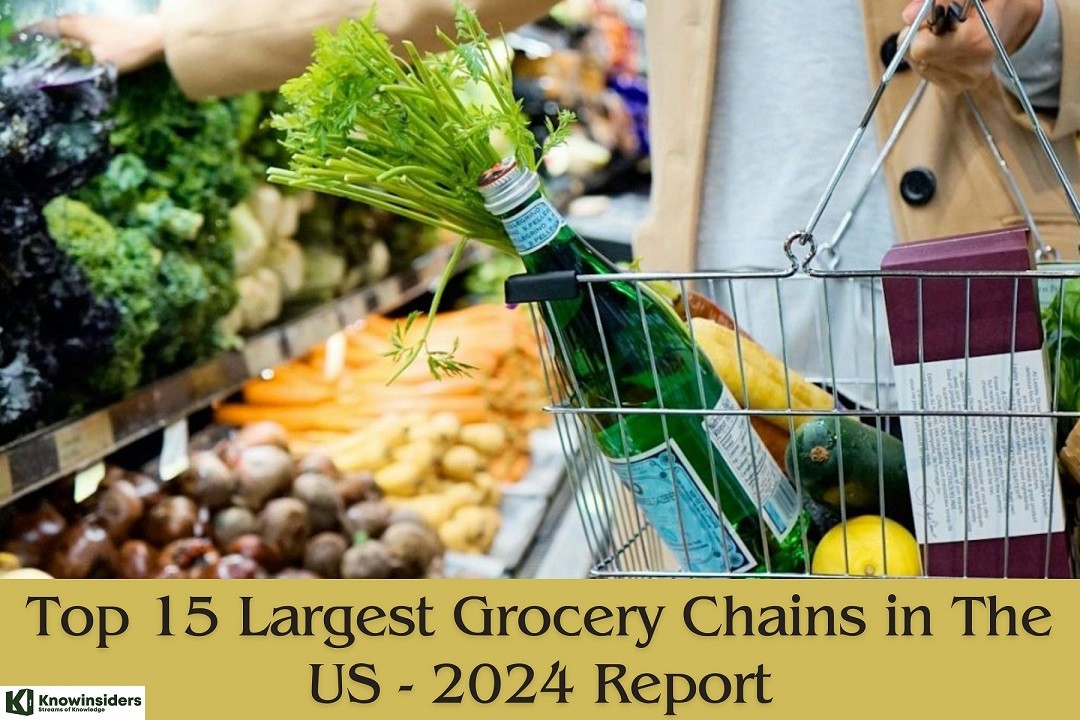 |
| Top 15 Largest Grocery Chains in The US - 2024 Report |
Overview of the US Supermarket Industry
The U.S. supermarket industry is competitive and dynamic, with thin profit margins and diverse consumer demands. This industry includes large grocery chains, local grocers, and specialty stores that sell basic food and gourmet and organic products.
Walmart, Kroger, and Costco dominate the market with their wide product selections, aggressive pricing, and extensive geographic presence. H-E-B and Publix, local favorites known for their customer service and community focus, complement these giants.
Demand for organic, non-GMO, and locally sourced products has increased due to consumer preferences for convenience and health. This trend has been exploited by Whole Foods and Trader Joe's. Online shopping convenience and technology-enabled personalized shopping are also growing in importance. To meet demand, retailers are rapidly adopting online delivery and pickup.
Supermarkets diversify to stay competitive. This includes expanding private label brands, improving customer loyalty programs, and investing in technology to boost operational efficiency and customer engagement. Many retailers reduce their environmental impact by using energy-efficient and waste-reducing practices.
Rising operational costs, supply chain complexity, and rapidly changing consumer preferences challenge the industry. International players like Aldi and Lidl have increased competition, forcing traditional chains to innovate faster.
E-commerce and health and wellness products will likely grow in the U.S. supermarket industry.
Top 15 Biggest Grocery Chains in The US
1. Walmart
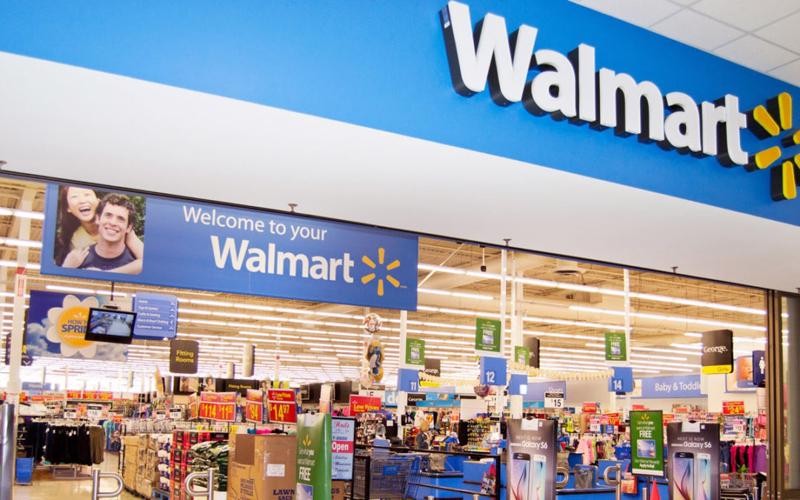 |
| Walmart |
Established Year: 1962
Stores Included: Over 11,000 stores, including a combination of Walmart Supercenters, discount stores, Neighborhood Markets, and Sam's Club locations, are run by Walmart under 56 banners across 27 countries.
Leading the pack, Walmart is the biggest company globally in terms of revenue as well as the largest grocery retailer. Walmart remains at the top of the grocery industry thanks to its strategy, which prioritizes low prices and a wide assortment.
Sam Walton established Walmart in Rogers, Arkansas, and it has since expanded to become the largest retailer globally in terms of revenue. It is well known for its vast product selection, which includes everything from groceries to electronics and clothes, as well as its "Everyday Low Prices" philosophy. With its online and pickup services, Walmart has challenged other industry titans like Amazon and improved customer accessibility and convenience. It has also made significant advancements in e-commerce.
2. Kroger
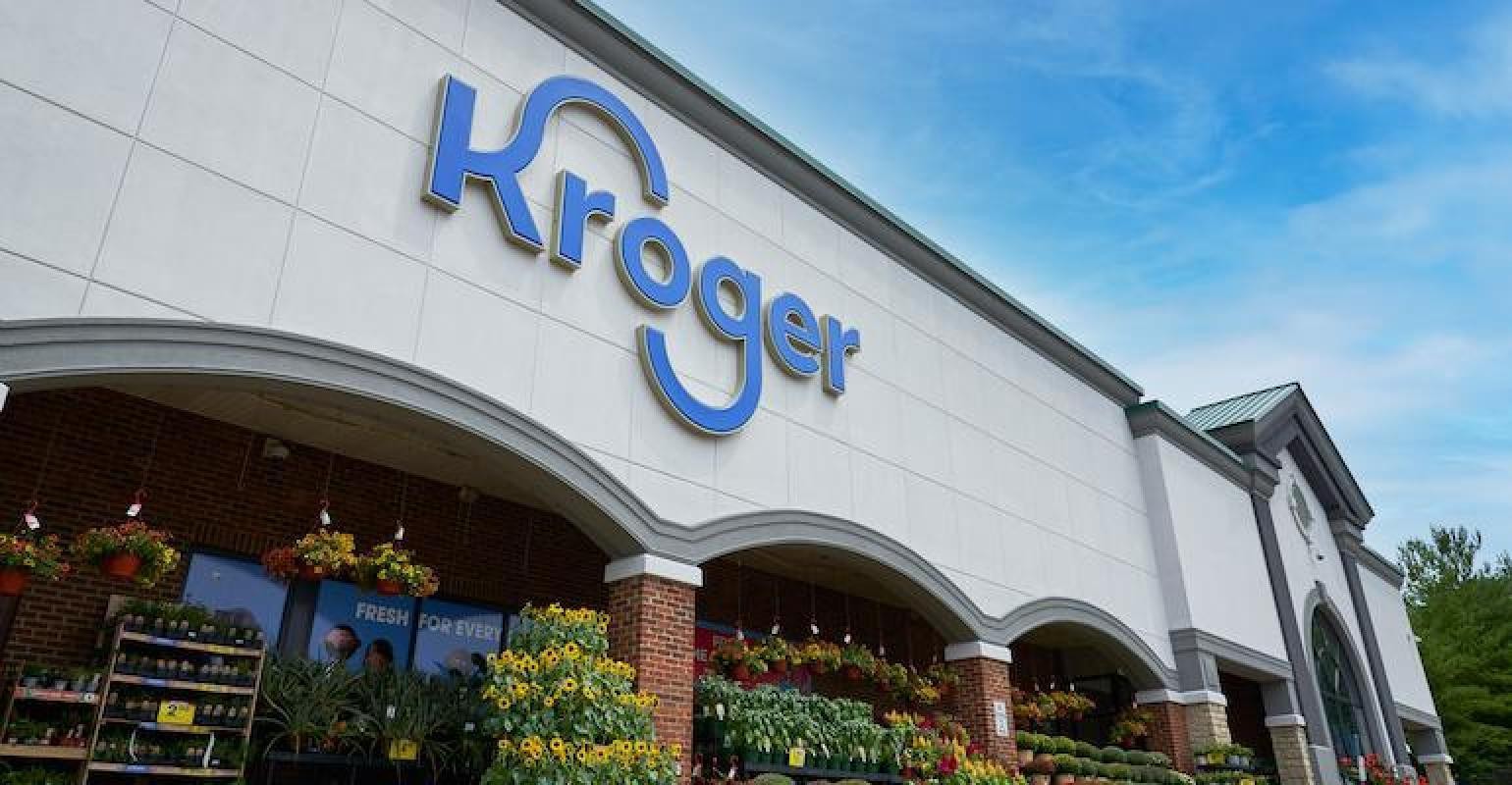 |
| Kroger |
Established Year: 1883
Stores Included: Kroger itself operates nearly 2,800 stores across the United States under various banners such as Ralphs, Dillons, Smith’s, King Soopers, Fry’s, QFC, and City Market.
Kroger is the biggest supermarket chain in the US in terms of sales. It has a lot of different products, including its own line of organic and free-from foods. People know the business for its customer loyalty program and cutting-edge shopping technology.
Bernard Kroger started Kroger in Cincinnati, Ohio. It is one of the biggest grocery store chains in the U.S. in terms of sales and has a big share of the grocery market. People know the company for its grocery stores, stores with more than one department, jewelry stores, and a manufacturing arm that makes its own brand of goods. Kroger cares about the environment and using new technology, like their cashierless checkout system, to make shopping easier and better for customers.
3. Costco
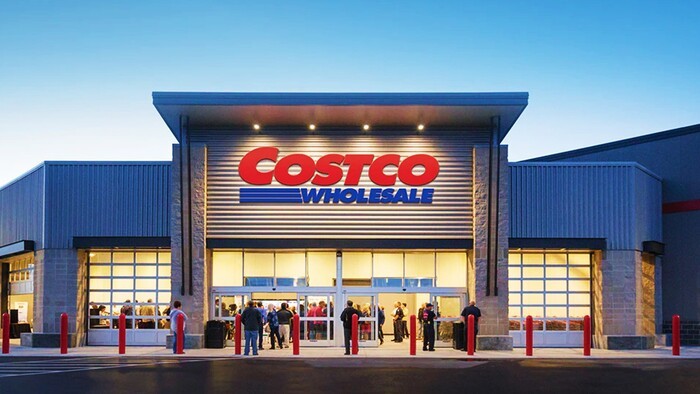 |
| Costco |
Established Year: 1983
Stores Included: Costco operates 828 warehouses worldwide, with the majority in the United States. Their model is based on offering bulk quantities of merchandise at low prices to those holding a membership.
Known for its membership warehouse club model, Costco excels in providing bulk products at competitive prices. Its limited selection of merchandise, combined with high quality and value, attracts a dedicated customer base.
Costco, headquartered in Issaquah, Washington, was founded by James Sinegal and Jeffrey Brotman. The company is a membership-only warehouse club known for its low prices on bulk products and high-quality items, including groceries, electronics, clothing, and more. Costco's unique business model focuses on high sales volume and quick inventory turnover combined with the sale of private label items in a wide range of merchandise categories. Costco also offers services such as pharmacy, optical, and travel. The chain is popular for its exclusive product offerings and private label brand - Kirkland Signature.
4. Albertsons
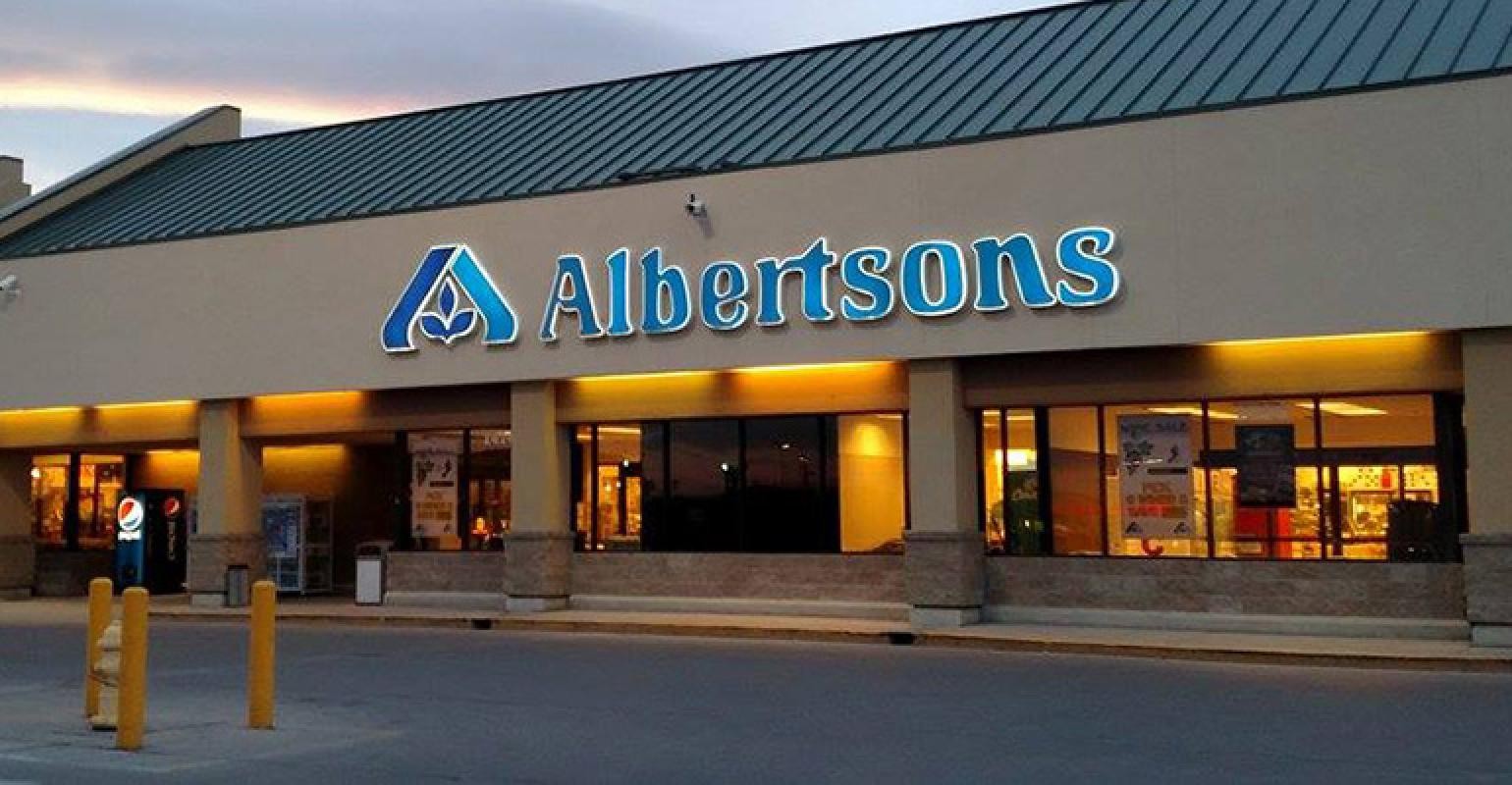 |
| Albertsons |
Established Year: 1939
Stores Included: Albertsons operates over 2,200 stores across the United States, including well-known banners such as Safeway, Vons, Jewel-Osco, Shaw's, Acme, Tom Thumb, Randalls, United Supermarkets, Pavilions, Star Market, and Haggen.
Founded by Joe Albertson in Boise, Idaho, Albertsons started as a single store and has grown into one of the largest food and drug retailers in the United States. Albertsons is recognized for its commitment to quality and its innovative approach to grocery retail, such as in-store pharmacies, specialty departments, and a strong online presence with delivery and pickup options. The company focuses on fresh produce, quality meats, and bakery items, along with private label brands that provide value to consumers.
Operating under several banners including Safeway and Vons, Albertsons offers a variety of store formats that cater to different demographic segments. The company has been expanding its online and in-store services to enhance shopping convenience.
5. Publix
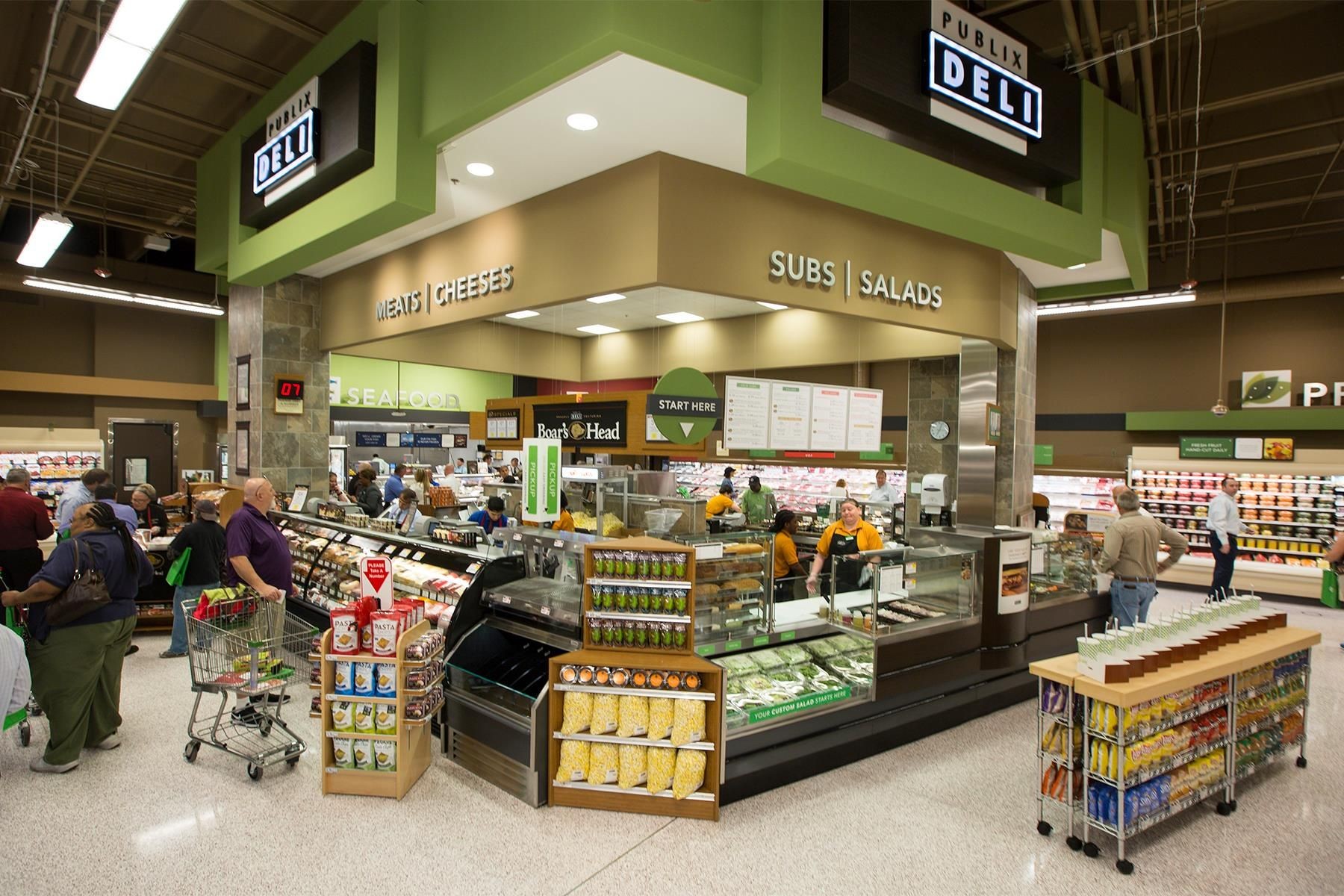 |
| Publix |
Established Year: 1930
Stores Included: Publix operates more than 1,200 stores primarily in the southeastern United States, including Florida, Georgia, Alabama, South Carolina, Tennessee, North Carolina, and Virginia.
Renowned for excellent customer service, Publix is the largest employee-owned grocery chain in the US. Its clean stores and focus on customer satisfaction have garnered a strong following in the Southeastern states.
Publix Super Markets Inc., founded by George W. Jenkins, is the largest employee-owned grocery chain in the United States. Known for its philosophy of excellent customer service, Publix has a loyal customer base thanks to its clean stores, high-quality products, and community involvement. The chain offers a variety of services beyond groceries, including bakeries, delis, and pharmacies, and is highly regarded for its prepared food sections and specialty products.
Read More: Top 10 Cheapest Supermarkets in the US
6. Aldi
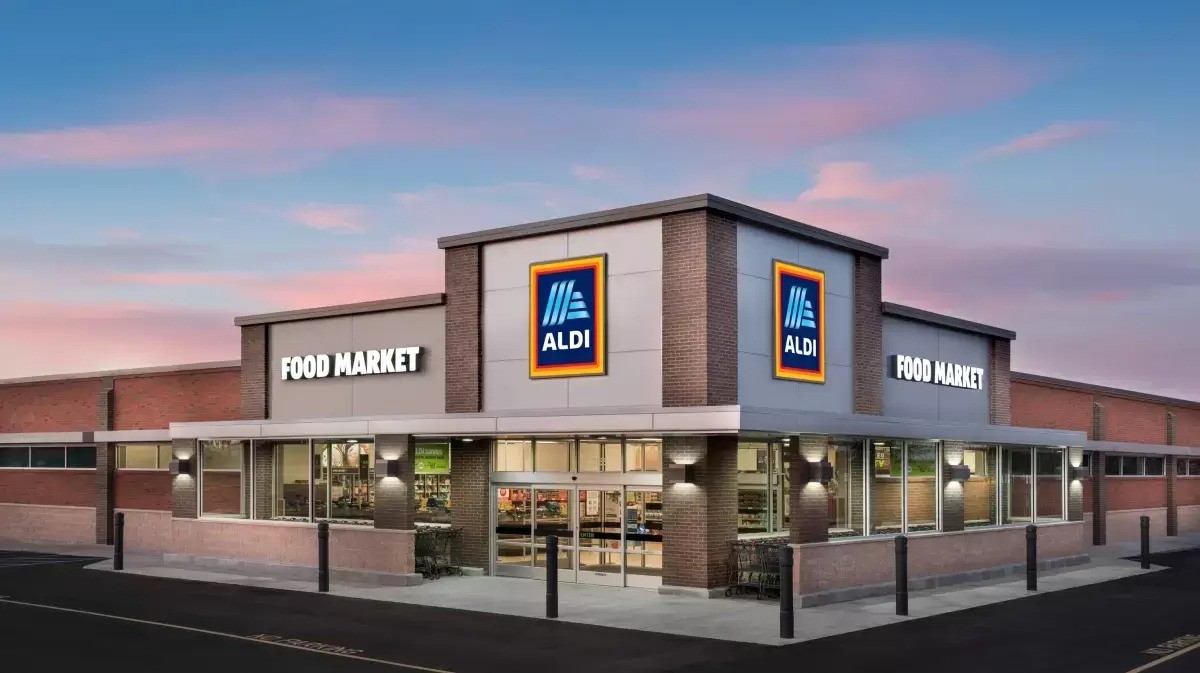 |
| Aldi |
Established Year: 1976 in the U.S. (1913 in Germany)
Stores Included: Aldi operates over 2,000 stores in 36 states within the U.S., part of more than 10,000 stores under the Aldi brand globally.
Aldi is a discount grocery store chain with stores all over the world. It was started by the Albrecht family in Germany and first opened in Iowa. The chain is known for its low-cost business model, which includes only a few private-label items that are kept in their original shipping boxes to save money on handling. In order to be more efficient and cut down on costs, stores are usually smaller than supermarkets. Aldi focuses on being simple, environmentally friendly, and efficient in how it runs its business. Its much lower prices on necessities appeal to shoppers who want to save money.
With its simple, low-cost approach, Aldi makes shopping easy and focuses on selling high-quality private-label brands. Customers benefit from Aldi's low prices, which makes it a favorite among shoppers on a budget.
7. H-E-B
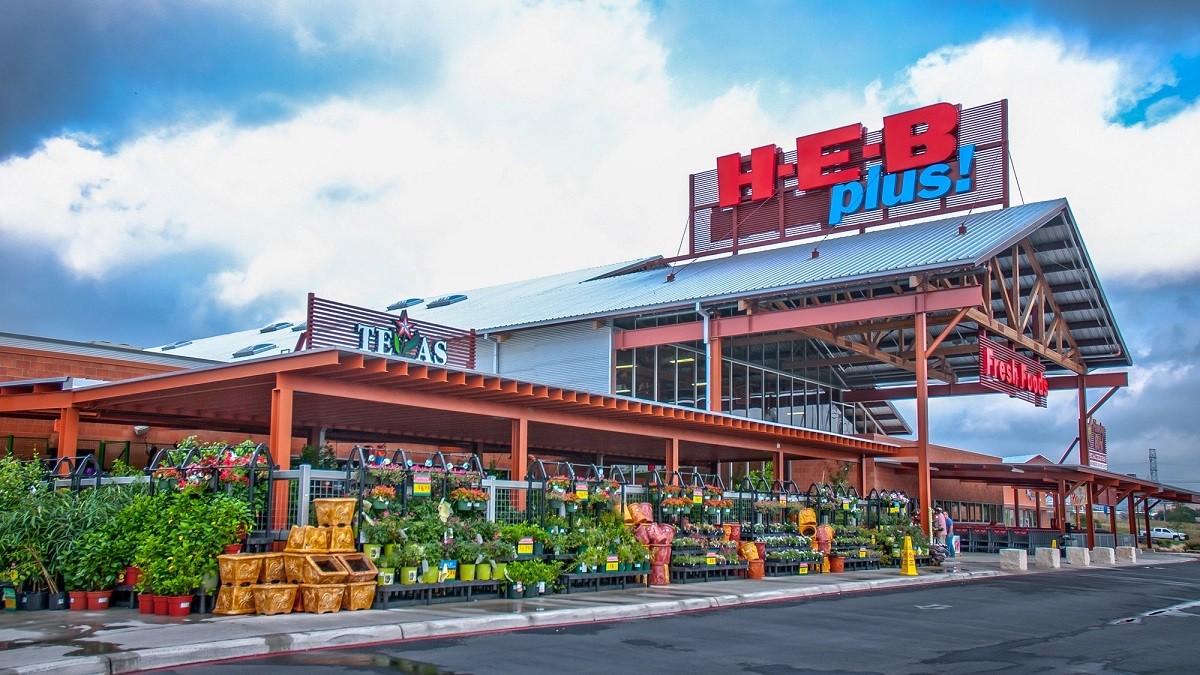 |
| H-E-B |
Established Year: 1905
Stores Included: H-E-B operates over 340 stores primarily in Texas and Northeast Mexico.
Many people in Texas love H-E-B because it cares about the community and only sells products that come from nearby. Its new stores have gourmet and organic options that appeal to a wide range of customers.
Florence Butt opened H-E-B in Kerrville, Texas, as a small family store. It has since grown into one of the biggest independent food stores in the country. H-E-B is known for its low prices, dedication to great customer service, and involvement in the community. It adapts its products to meet the needs of the area and is famous for its fresh produce, high-quality meat, and bakery goods. The business also runs Central Market, a store that sells gourmet and organic foods. H-E-B keeps coming up with new services, like curbside pickup and home delivery, that make its customer service better in this digital age.
8. Whole Foods Market
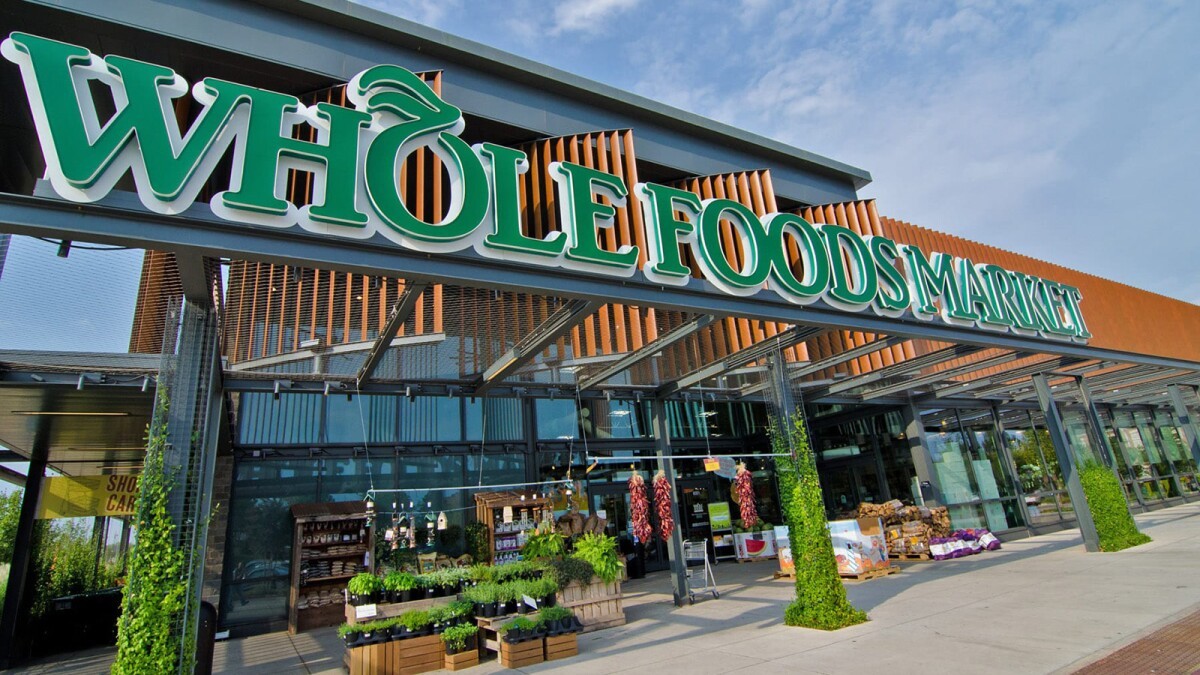 |
| Whole Foods Market |
Established Year: 1980
Stores Included: Whole Foods Market operates over 500 stores in North America and the United Kingdom.
Whole Foods, an Amazon subsidiary, is renowned for its premium natural and organic food offerings. With the incorporation of Amazon's technology and convenient features, the chain keeps growing.
John Mackey and Renee Lawson Hardy established Whole Foods Market, an organic and natural products-focused supermarket chain, in Austin, Texas. The business is renowned for its exacting standards of quality, which forbid the use of artificial coloring, flavorings, or preservatives. After being purchased by Amazon in 2017, Whole Foods has incorporated a number of technology innovations to simplify shopping and lower costs. Whole Foods is still a pioneer in natural and organic foods and a strong supporter of sustainable farming practices.
9. Trader Joe’s
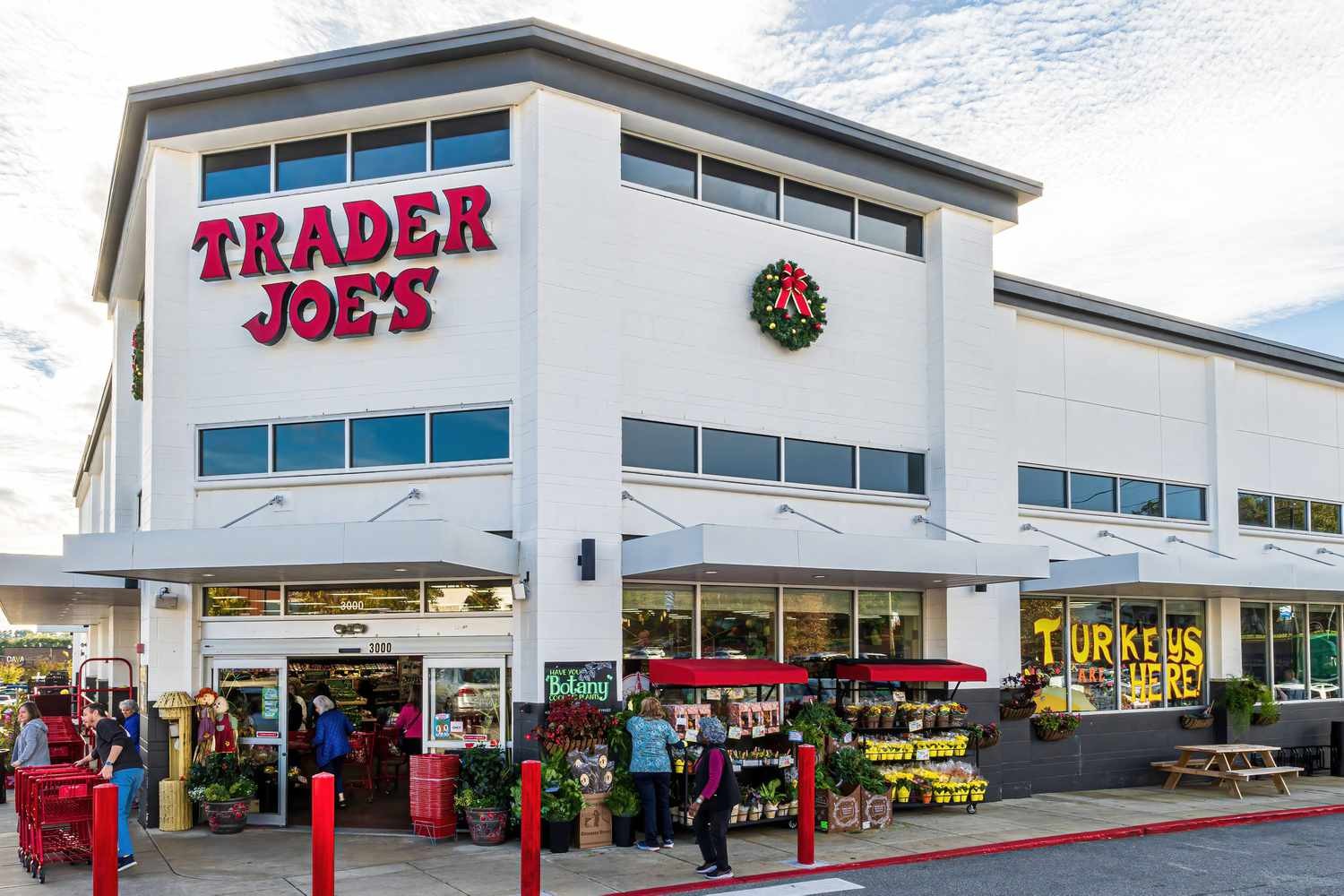 |
| Trader Joe’s |
Established Year: 1967
Stores Included: Trader Joe’s operates over 530 stores across the United States.
Trader Joe's has a loyal customer base because it has a wide range of unique products and a friendly atmosphere. The store chain is known for its unique private-label items that often become cult favorites.
Trader Joe's is a unique grocery store chain that was started by Joe Coulombe in Pasadena, California. It is known for its new, private-label products that are often geared toward food lovers who like to try new things. The stores sell a range of goods, such as gourmet, organic, vegetarian, and frozen goods. Often, the stores are smaller and easier to navigate. The brand is known for its nautical theme and friendly employees, who are known as "Crew Members." People love shopping at Trader Joe's because it has a wide range of high-quality goods at low prices and its stock is always changing, which keeps shopping fun and interesting.
10. Wegmans
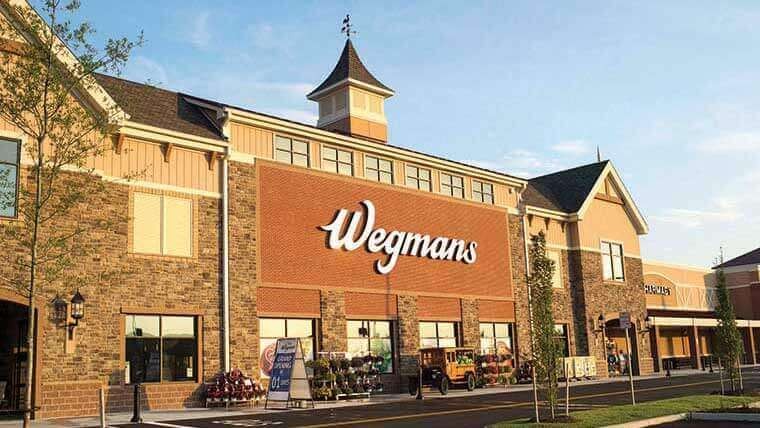 |
| Wegmans |
Established Year: 1916
Stores Included: Wegmans operates 106 stores primarily in the mid-Atlantic and Northeastern regions of the United States.
Offering a family-owned touch, Wegmans is celebrated for its customer service, clean stores, and high-quality products. The chain has a strong presence in the Northeast and Mid-Atlantic regions.
Founded by John and Walter Wegman in Rochester, New York, Wegmans is a family-owned supermarket chain known for its commitment to quality products, customer service, and community support. The stores are large and offer an extensive variety of groceries, prepared foods, and household items, often featuring a European open-air market layout. Wegmans is celebrated for its employee welfare practices, extensive employee training programs, and has been regularly featured on lists of best companies to work for.
11. Meijer
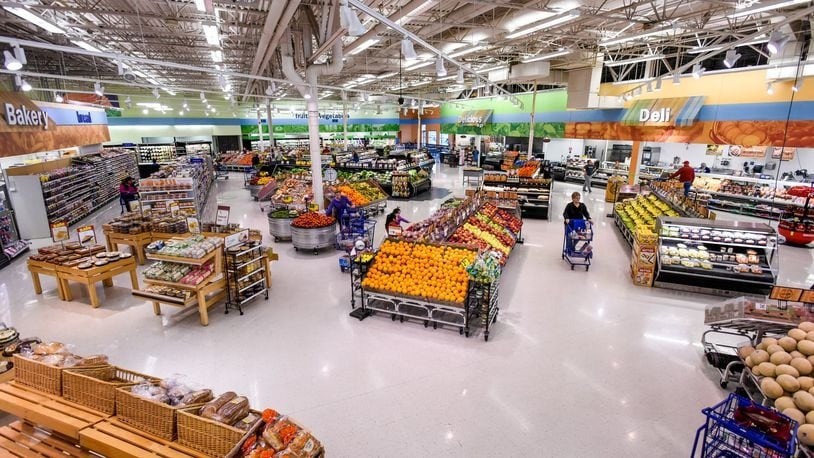 |
| Meijer |
Established Year: 1934
Stores Included: Meijer operates more than 240 supercenters and grocery stores throughout Michigan, Ohio, Indiana, Illinois, Kentucky, and Wisconsin.
A pioneer of the supercenter concept, Meijer offers a wide range of goods from groceries to electronics, making it a one-stop-shop for many. Its 24-hour service and commitment to freshness attract a steady flow of customers.
Founded by Hendrik Meijer in Greenville, Michigan, Meijer is credited with pioneering the modern supercenter concept in 1962. This family-owned retailer combines grocery and department store items in a single space, offering everything from fresh produce and electronics to clothing and automotive supplies. Meijer is known for its "Thrifty Acres" model, which aims to provide a wide range of goods at low prices, 24 hours a day. The chain remains focused on innovation, community engagement, and sustainability, continuously adapting to customer needs and preferences.
12. Hy-Vee
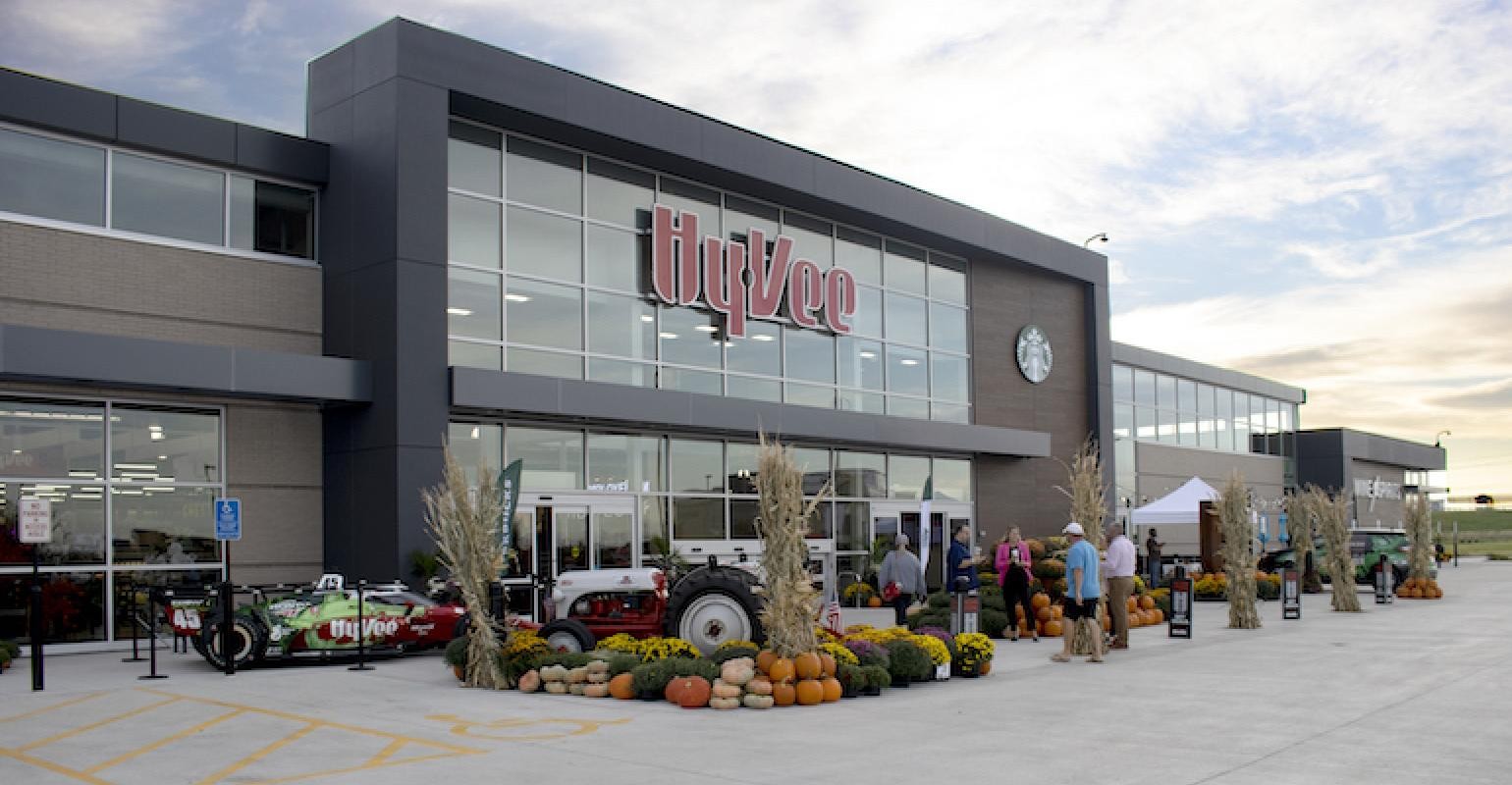 |
| Hy-Vee |
Established Year: 1930
Stores Included: Hy-Vee operates more than 265 stores across eight Midwestern states, including Iowa, Illinois, Missouri, Kansas, Nebraska, South Dakota, Minnesota, and Wisconsin.
Known for its employee-owned structure, Hy-Vee places a strong emphasis on health and wellness products. Its stores often feature fitness centers and dietitian services, enhancing the shopping experience.
Hy-Vee, founded by Charles Hyde and David Vredenburg in Beaconsfield, Iowa, is an employee-owned chain known for its slogan, “A Helpful Smile in Every Aisle.” The stores offer a wide range of products and services, including groceries, full-service restaurants (called Hy-Vee Market Grille), fitness centers, and health clinics. Hy-Vee emphasizes excellent customer service, community involvement, and health and wellness initiatives, offering dietitian services and health-focused food options to cater to the well-being of its customers.
13. Sam’s Club
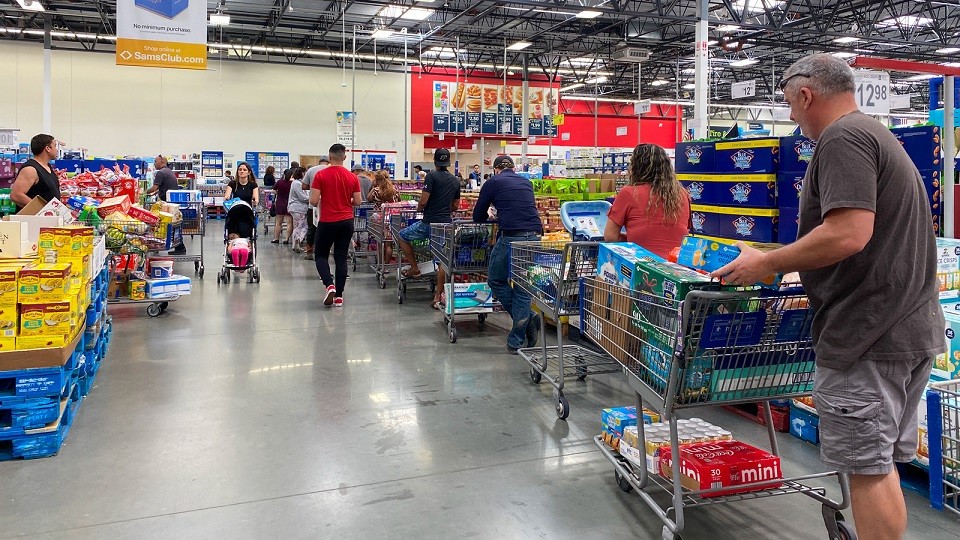 |
| Sam’s Club |
Established Year: 1983
Stores Included: Sam’s Club operates over 600 membership warehouse clubs in the United States and a number of international locations.
A division of Walmart, Sam’s Club operates on a membership warehouse club model similar to Costco. It offers bulk products and other services, often at discount prices, catering to both individual and business members.
Founded by Walmart founder Sam Walton in Midwest City, Oklahoma, Sam’s Club is a membership-only warehouse club that serves both individuals and businesses. It provides a wide range of bulk groceries, electronics, home goods, and health products at competitive prices. Sam’s Club is known for its sizeable discounts on high-volume items, which appeal to both large families and small business owners. The club also offers services such as tire and battery centers, pharmacies, and optical centers, enhancing the shopping convenience for its members.
14. Lidl
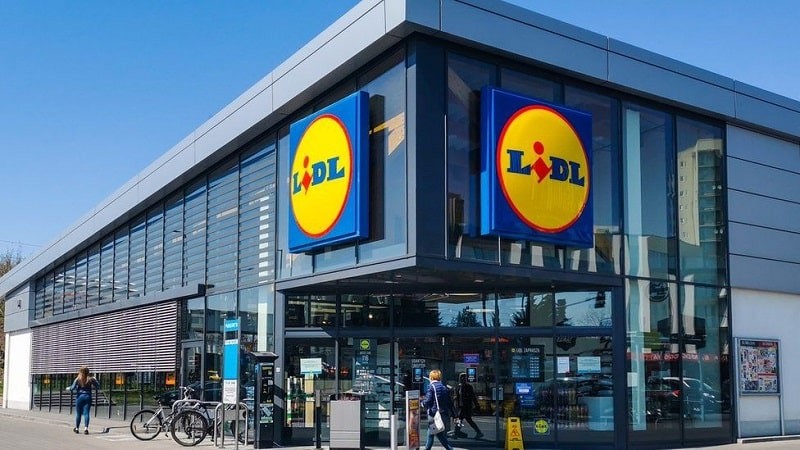 |
| Lidl |
Established Year: 1973 in Germany, entered the U.S. market in 2017
Stores Included: Lidl operates over 11,000 stores worldwide, with around 150 stores across the East Coast of the United States.
The German discount grocery store Lidl is a relatively new player in the US market, but it has been growing quickly thanks to its low prices and high-quality private-label brands.
Lidl is a global discount supermarket chain that was started in Germany by Dieter Schwarz. It has made big moves into the American grocery market. The stores have a wide range of low-cost groceries, fresh fruits and vegetables, baked goods, and household items. Lidl is able to keep prices low while still maintaining quality because its stores are well-organized and it focuses on its own brands. The chain keeps growing in the U.S., competing with other types of grocery and discount stores thanks to its low prices and easy-to-use shopping space.
15. BJ’s Wholesale Club
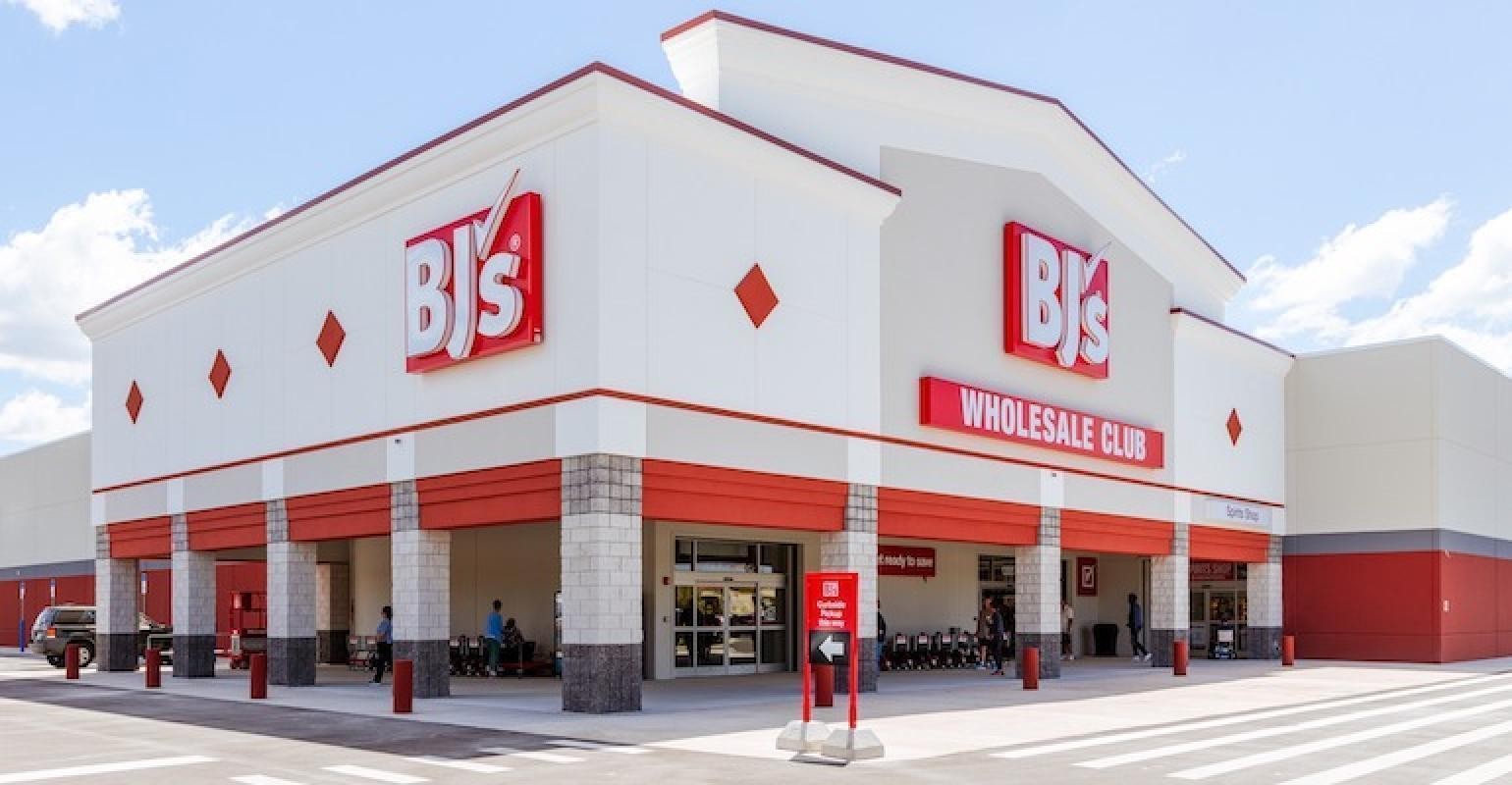 |
| BJ’s Wholesale Club |
Established Year: 1984
Stores Included: BJ’s operates over 220 membership warehouse clubs across 17 states in the Eastern United States.
BJ's Wholesale Club is known for its low prices and coupon policies. It also sells a lot of different items in bulk, which makes it appealing to both individual shoppers and small businesses.
Since its start in Massachusetts, BJ's Wholesale Club has been a warehouse club where members can get a lot of goods at lower prices. These goods include groceries, electronics, home goods, and services. BJ's is known for letting customers use manufacturer's coupons along with their own discounts, which can save them a lot of money. The club stands out from its competitors because it has a wider range of perishables and grocery items, making it suitable for both individual shoppers and small businesses. BJ's also has a lot of different services, like optical shops, home improvement services, and travel services, which are all valuable to its members.
In Summary
These retail chains are more than just physical stores; they are essential elements of everyday life in the United States, and they are constantly adapting to meet the ever-evolving requirements and preferences of customers.
These giants are poised to redefine shopping experiences by making groceries more accessible, affordable, and in line with consumer expectations. This comes at a time when the grocery industry is facing new challenges and opportunities.
 Top 8 Biggest Ambulance Services in the US - 2024 Report Top 8 Biggest Ambulance Services in the US - 2024 Report When every second counts in medical emergencies, air ambulance services offer a lifeline for individuals who require immediate medical assistance. With the increasing demand for ... |
 Top 10 Best-Selling Gun Brands in the US - 2024 Report Top 10 Best-Selling Gun Brands in the US - 2024 Report Several American firearm brands have led innovation and craftsmanship in the ever-changing industry. Today, we examine the top 12 gun brands that dominate the market ... |
 Top 9 Biggest Hedge Funds in the US Today Top 9 Biggest Hedge Funds in the US Today In this post, we'll look at 9 of the largest hedge funds in the United States. Let's check it out! |























